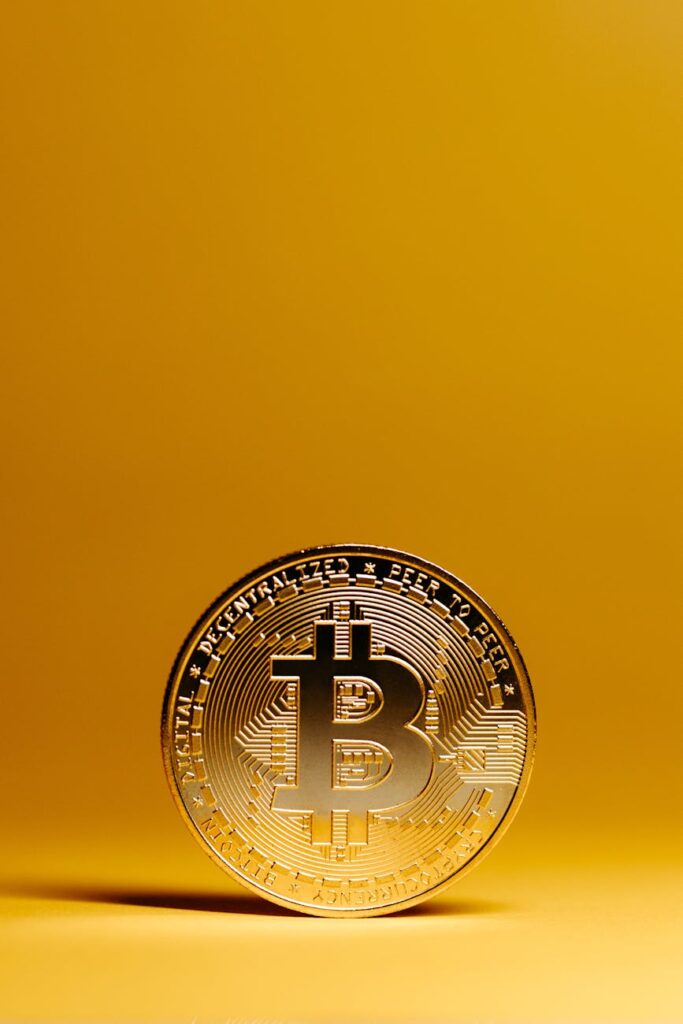The Unthinkable is Happening: Will Nations Bet Their Future on Bitcoin?
It sounds like the plot of a science fiction novel. A decentralized, digital currency, created by a ghost, suddenly finding its way into the vaults of a sovereign nation. For years, the idea of countries holding bitcoin in official reserves was dismissed as a fringe fantasy. It was too volatile, too risky, too… weird. But then, a small Central American nation flipped the script. El Salvador’s move to adopt Bitcoin as legal tender and add it to its balance sheet wasn’t just a headline; it was a tremor that sent shockwaves through the halls of traditional finance and government. The question is no longer *if* a nation would do this, but who’s next, and why?
Key Takeaways
- The Precedent is Set: El Salvador’s 2021 adoption of Bitcoin as legal tender proved that nation-state adoption is no longer theoretical.
- Motivations Vary: Nations are exploring Bitcoin as a hedge against inflation, a tool for de-dollarization, a magnet for tech investment, and a way to improve financial inclusion.
- Major Hurdles Remain: Extreme price volatility, regulatory pressure from global bodies like the IMF, and complex security/custody challenges are significant deterrents for most countries.
- Game Theory is in Play: As more nations consider or adopt Bitcoin, a domino effect could be triggered, forcing even skeptical countries to acquire some as a strategic, neutral reserve asset.
The Spark: El Salvador’s Grand Experiment
Let’s be clear: El Salvador wasn’t a global economic powerhouse making a calculated diversification. It was a nation with a specific set of problems. A huge portion of its population was unbanked, and the country was heavily reliant on remittances—money sent home from citizens working abroad. These transfers were often slow and expensive, with intermediary banks taking a significant cut. President Nayib Bukele saw a potential solution in Bitcoin’s Lightning Network, which promised near-instant, low-cost cross-border payments. It was a bold, audacious gamble.
The move to make Bitcoin legal tender alongside the U.S. dollar was one thing. But the decision to start buying Bitcoin for the country’s treasury was another level entirely. Suddenly, a nation-state was a HODLer. The world watched, with reactions ranging from stunned disbelief to enthusiastic applause. International bodies like the IMF immediately warned of the risks, citing financial instability and the potential for illicit finance. Critics pointed to the wild price swings and the steep learning curve for the average citizen. Yet, supporters saw a nation bravely forging a new path, breaking free from dependence on traditional financial systems. El Salvador, for better or worse, became the world’s living laboratory for national Bitcoin adoption.
Why Would a Nation-State Even Consider Bitcoin?
El Salvador’s reasons were unique, but they opened up a broader conversation about the strategic advantages of holding a non-sovereign, hard-capped asset. The motivations boil down to a few key drivers, each compelling in its own right.
A Hedge Against Inflation and De-dollarization
For centuries, gold was the ultimate reserve asset. It’s scarce, durable, and not controlled by any single government. In a world of rampant money printing and ballooning national debts, Bitcoin is increasingly being called “digital gold.” Its supply is mathematically fixed at 21 million coins. No central bank can decide to create more. This programmatic scarcity is incredibly attractive to countries watching the purchasing power of their reserves—often held in U.S. dollars—erode over time. The U.S. dollar’s status as the world’s reserve currency gives America immense geopolitical power. For nations looking to gain monetary sovereignty, diversifying away from the dollar (a process known as de-dollarization) is a strategic priority. Holding Bitcoin offers a path to holding a neutral asset, much like gold, but with the added benefits of being digital and easily transferable.

Attracting Foreign Investment and Tech Talent
Announcing that your country holds Bitcoin is a massive signal to the global tech and crypto community. It says, “We are open for business. We are forward-thinking.” Countries can leverage this to become innovation hubs, attracting entrepreneurs, developers, and capital. By creating a favorable regulatory environment—think tax breaks for crypto companies and clear legal frameworks—a nation can jumpstart a new sector of its economy. It’s a marketing play on a geopolitical scale. Suddenly, a small country can be on the world stage, seen as a leader in a burgeoning new financial technology. It’s a powerful way to rebrand and compete for the immense wealth being generated in the digital asset space.
Financial Inclusion for the Unbanked
This is a particularly powerful motivator for developing nations. Billions of people worldwide lack access to basic banking services. They can’t get a loan, build credit, or even securely save money. But many of these same people have a smartphone. Bitcoin and other cryptocurrencies offer a way to bypass the traditional banking system entirely.
- Access to Global Markets: Anyone with an internet connection can send and receive Bitcoin from anywhere in the world.
- Self-Custody: For the first time, individuals can truly own their money without needing a third-party intermediary. This is a profound concept in countries with unstable governments or a history of asset seizure.
- Lower Remittance Costs: As seen in the El Salvador example, it can drastically reduce the fees associated with sending money across borders, putting more money directly into the pockets of families.
The Towering Hurdles: Risks and Roadblocks
If the benefits are so clear, why hasn’t every country jumped on the bandwagon? The reality is that the path is riddled with enormous, complex challenges. Holding bitcoin in official reserves is not for the faint of heart.
The Infamous Volatility Problem
This is the big one. Bitcoin’s price is notoriously volatile. It’s not uncommon to see swings of 10-20% in a single day. Imagine being a finance minister trying to budget for your country’s healthcare or education when a core part of your treasury could drop 50% in a few months. It’s a political and economic nightmare. While long-term holders (HODLers) are accustomed to this volatility and see it as the price of admission for outsized returns, a government operates on much shorter, more stable time horizons. A severe bear market could be catastrophic for a nation that has allocated a significant portion of its reserves to Bitcoin, potentially leading to a sovereign debt crisis.
Regulatory Nightmares and Geopolitical Pressure
The existing global financial system doesn’t take kindly to disruption. Institutions like the International Monetary Fund (IMF) and the World Bank wield immense power, especially over developing nations that rely on their loans and support. The IMF has been explicitly critical of Bitcoin adoption, warning countries of the risks and threatening to withhold financial aid. For many nations, defying these institutions is simply not an option. Furthermore, there’s the Financial Action Task Force (FATF), which sets global standards for combating money laundering and terrorist financing. Navigating these complex regulations while embracing a pseudonymous digital currency is a massive legal and technical challenge.
Security, Custody, and the ‘Not Your Keys’ Dilemma
How does a country actually *hold* billions of dollars worth of Bitcoin? It’s a monumentally complex security problem. You can’t just store it in a typical bank vault. Do you entrust it to a third-party custodian like Coinbase or Fidelity? That introduces counterparty risk. Do you self-custody? If so, who holds the private keys? A committee? The head of the central bank? What happens if those keys are lost, stolen, or compromised? A single mistake could result in the irreversible loss of a nation’s wealth. The phrase “Not your keys, not your coins” takes on a terrifying new meaning at the sovereign level. Developing a robust, multi-layered, and politically stable custody solution is perhaps the single greatest technical barrier to widespread adoption.
“The game theory of Bitcoin adoption is fascinating. The first country to buy it sees a big risk but also a huge potential reward. The last country to buy it sees little risk, but is forced to buy it at a much higher price from the early adopters. It creates a powerful incentive to not be last.”
The Players on the Chessboard: Who’s Next?
Speculation is rampant about which nations might follow El Salvador’s lead. While it’s unlikely a G7 nation will be the next to dive in headfirst, several archetypes of countries are prime candidates.
Look for countries with high inflation and unstable local currencies, like those in parts of Latin America or Africa. For them, Bitcoin’s volatility might actually seem preferable to the certainty of their fiat currency losing value every single day. Also, watch nations that are rich in energy resources but subject to international sanctions. They have the means to mine Bitcoin (turning energy directly into a globally-recognized asset) and a powerful incentive to transact outside the U.S. dollar system. Finally, keep an eye on sovereign wealth funds. These massive, state-owned investment funds are already dipping their toes into alternative assets, and it’s only a matter of time before one of them makes a significant, public allocation to Bitcoin, viewing it as a long-term store of value for future generations.

The Game Theory of It All
This is where it gets really interesting. What happens when a second, and then a third, country announces a Bitcoin treasury? A domino effect starts to look plausible. Each new nation that adds Bitcoin to its balance sheet de-risks the asset for the next one. It increases liquidity, normalizes the idea, and puts pressure on other countries to do the same. If your neighboring country or economic rival is accumulating a potential future global reserve asset, can you afford to sit on the sidelines and have zero exposure? This is classic game theory. No one wants to be the first to make a risky move, but absolutely no one wants to be the last one left holding rapidly devaluing fiat currencies while everyone else has already secured their position in the new digital alternative.
Conclusion: An Inevitable Trickle or a Distant Mirage?
The journey of Bitcoin from a niche internet currency to a potential sovereign reserve asset has been nothing short of extraordinary. The debate over whether nation-states will hold bitcoin in official reserves is no longer a fringe discussion. It’s happening, albeit slowly and cautiously. The path is fraught with genuine risks—volatility, regulation, and security are not trivial concerns. But the potential rewards—monetary sovereignty, economic growth, and a hedge against a fragile global financial system—are too significant to ignore.
We are likely in the very early stages of a long, slow transition. It won’t be a floodgate opening overnight, but rather a trickle. A few more small, bold nations will test the waters. A sovereign wealth fund will announce a small allocation. As the infrastructure matures and the political calculus shifts, the trickle could gain momentum. The world’s financial chessboard is being reset, and for the first time in over a century, a new piece is being placed on the board. The only question is, who will be brave enough to play it?


